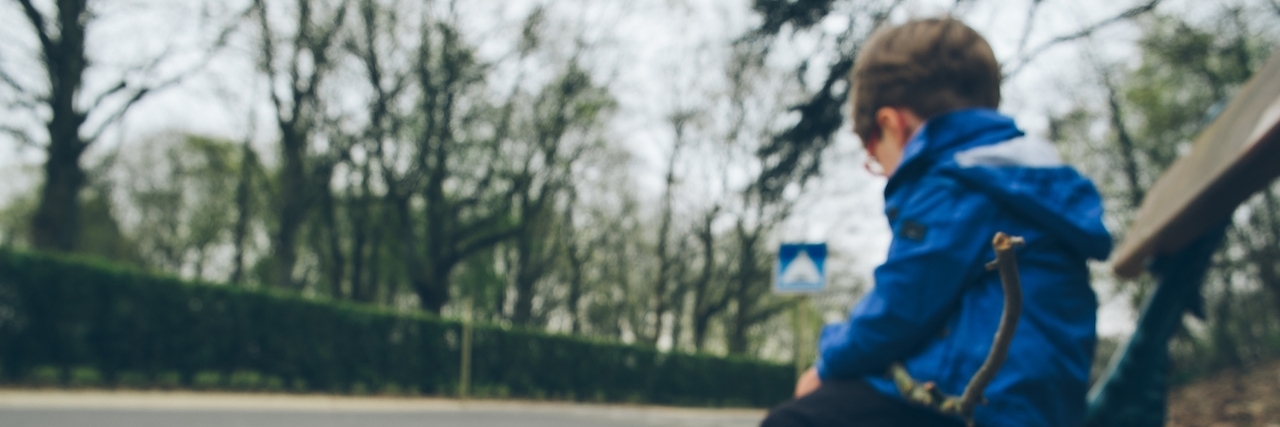When My Son Grasped a Concept About Mental Illness Some Adults Don't Understand
This morning on the way to nursery:
Me: Sorry if Mommy was a bit too cross yesterday. She wasn’t feeling well.
My son: Yes, you were a bit too cross.
Me: Yes and I’m sorry. It wasn’t your fault. It was mine.
My son: No, it wasn’t. Why were you being cross?
Me: Because I wasn’t feeling well.
My son: Then, it wasn’t your fault. It was because you weren’t feeling well.
My son in his childish brain managed to grasp a concept many of us postpartum depression (PPD) and mental health sufferers forget constantly. It is not our fault. Being ill means sometimes we act or feel a way we shouldn’t, and instead of feeling guilty and placing blame on ourselves, we should remember that.
You may also notice I explain a bad PPD day as “not feeling well.” I know my 4-year-old might not be able to grasp mental illness entirely, but I know he understands what it is like to not feel well. So for now that is how I explain my PDD to him. As he gets older, I will explain in more detail in a way he can understand, but for now it is just, “Mommy doesn’t feel well.”
On the way home from dropping him off, I thought back over that conversation and it made me remember how that was how my mother had explained mental illness to me when I came into contact with it at a similar age. She described it as someone not being well, and it is the truth. Although physically the person may not be sick, their mind is in a state of being unwell. It is a simple truth people don’t always seem to understand, which in some ways fuels stigma around mental health issues.
I also realized this might be why my mind was so open to empathy and understanding around the issue of mental health. From a young age, I had been taught mental illness is an illness that happens to regular people, not something to be ashamed of. This made me think even more. The stigma of mental health is often due to lack of awareness and understanding. If I wasn’t suffering from PPD, I don’t know if I would have even thought to discuss it with my 4-year-old, as my mother had with me. Yet as an illness, it is just as important and common as physical illnesses.
I think sometimes we don’t give children enough credit for how much they understand. In some ways, they can learn concepts better because their unbiased thinking hasn’t been tainted about issues. Maybe one way of beating the stigma of mental health is to start discussing mental illness with our children, who we consider to be the future. They will one day be adults who will be more understanding and empathetic toward mental illness and will know not to be ashamed to talk about these issues. That is definitely a future I would want for my children. How about you?
Much love,
LGL x
This post originally appeared on Little Girl Lost.

